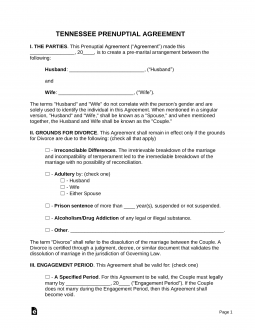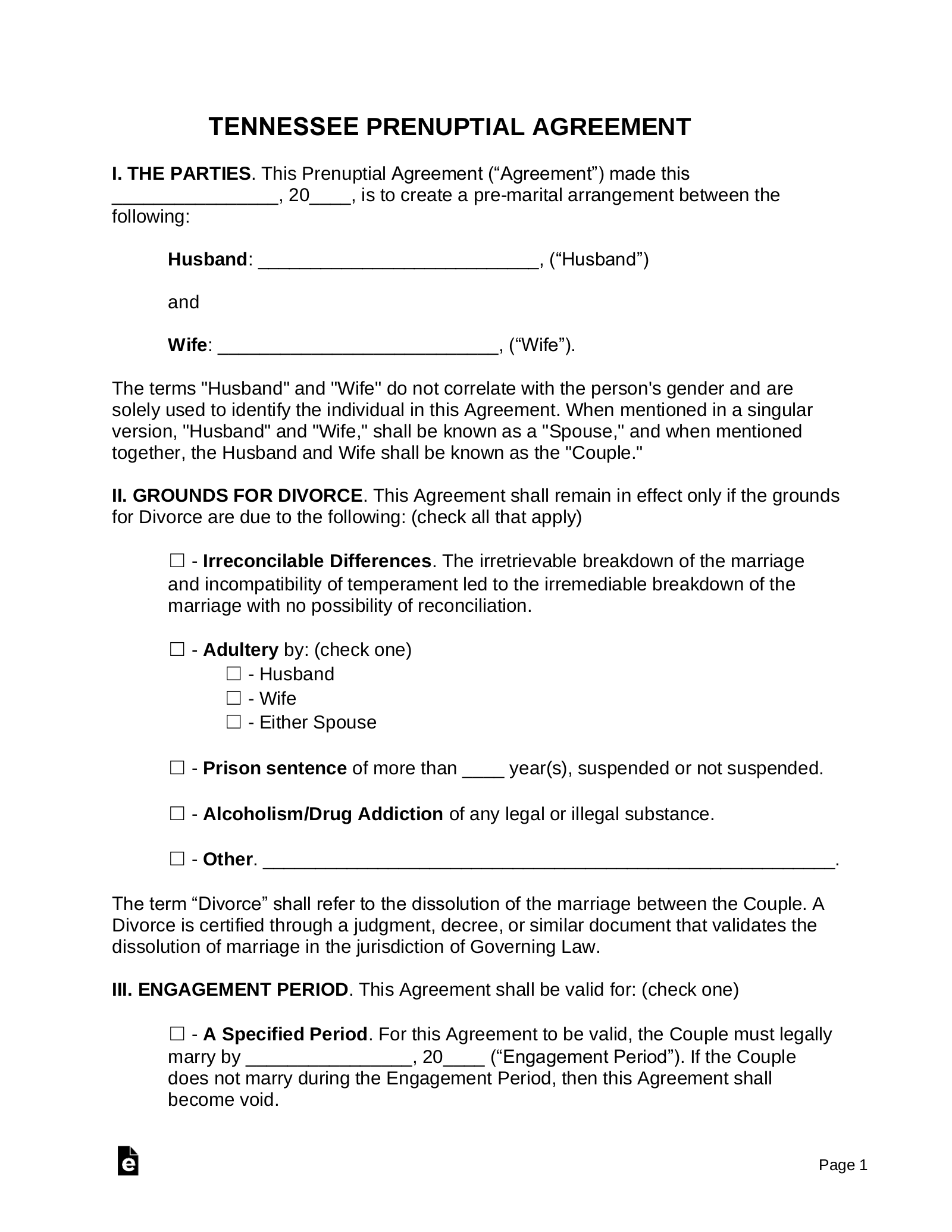Updated May 17, 2023
Or use ContractsCounsel to hire an attorney!
A Tennessee prenuptial agreement (often referred to as an “antenuptial agreement”) is a contract made between two spouses prior to marriage that details the division of property, assets, and debt in the event of death or divorce. This is a helpful tool for couples who want to keep their financial assets and debts separate, especially if they have a business together. It is common for the wealthier spouse in a potential marriage to suggest a prenuptial agreement to avoid lucrative alimony payments to their less wealthy partner. However, courts consider many factors when deciding whether or not a premarital agreement is fair and enforceable (see Grubb v. Grubb).
Laws
- § 36-3-501 – Enforcement of antenuptial agreements
- § 36-3-502 – Creditor’s rights
- § 36-3-503 – Antenuptial debts of wife — Nonliability of husband
- § 36-3-504 – Disabilities of coverture removed from married women — Statute of limitations
- § 36-3-505 – Tenancies by entirety unaffected
Case – Grubb v. Grubb, No. E2016-01851-COA-R3-CV (Tennessee 2017)
The Supreme Court was tasked with determining whether or not the husband appropriately disclosed, fully and fairly, the nature, extent, and value of their holdings, or that disclosure of the holdings was unnecessary because the wife had independent knowledge thereof. The court ruled the agreement to be invalid and unenforceable due to the wife’s age and disparity in sophistication, the husband being older, wealthier, more educated, and a successful businessman.
While disclosure need not reveal precisely every asset owned by an individual spouse, at a minimum, full and fair disclosure requires that each contracting party be given a clear idea of the nature, extent, and value of the other party’s property and resources.
…there is the issue of the dramatic disparity between the parties in terms of sophistication. Husband was a wealthy, college-educated, and successful businessman. Wife was 20 years old…and a G.E.D. was the summit of her formal education.
Equitable Distribution
Laws – § 36-4-121 (Division of marital property)
Tennessee, like most other states in the U.S., is an “equitable distribution” state. Equitable distribution is classifying property as “marital” or “separate” and then dividing said property equitably in accordance with state law. ‘Equitably’ does not necessarily mean a 50/50 split, but instead defines the process of splitting up marital properties using certain division factors listed in the statute directly above.


